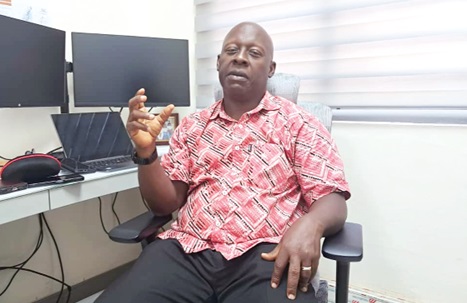
Odaw Basin: Encroachment hampers detention ponds project
Efforts to construct detention ponds, a major intervention in Accra floods control project, upstream of the Odaw Basin are being hampered by the encroachment of suitable lands by some private individuals.
Advertisement
A detention pond is a large depression in an urban landscape that is designed to manage stormwater runoff by storing it and releasing it gradually until it is completely drained.
Although six sites were identified in wetlands and watersheds mostly located in areas such as Abokobi and Damfa in the Ga East Municipal Assembly in the Greater Accra Region, the government could not acquire those lands.
The Coordinator of the Greater Accra Resilient and Integrated Development (GARID) project, Dr Kwadwo Ohene Sarfoh, who disclosed this to the Daily Graphic, said the crucial ecological resources had been taken over by traditional authorities and private developers.
Context
The GARID project is a five-year initiative that was rolled out by the government with funding from the World Bank as part of the Greater Accra Climate Risk Mitigation Strategy to build resilience against the perennial flooding of the capital city.
The project was conceived in the aftermath of the flood disaster in Accra on June 3, 2015, which claimed almost 200 lives. Based on the flood risk mitigation investment alternatives for the Odaw Basin that was carried out, the GARID project was rolled out to implement drainage interventions that would help to improve the Odaw drain and curb flooding in the city.
Dr Sarfoh said one of the strategies of the GARID project was to increase storage facilities through the establishment of detention ponds that would reduce the volume of water during a downpour.
“The ponds are to be built upstream of the Odaw River with the idea that whenever it rains, the rainwater will be diverted and held until the rains subside so that it can be released gradually,” he explained.
High cost
However, he said the government could not acquire the six ecological sites for the purpose of creating water retention ponds because of the high cost involved.
He said the valuation of the six sites by the Land Valuation Division of the Lands Commission was estimated at about $100 million, while the entire GARID project was being funded at a cost of $200 million.
Dr Sarfoh said in the circumstance, the GARID project team had no option but to resort to public lands in the Ghana Atomic Energy Commission (GAEC) area that would make detention ponds feasible.
He also said that although the ministries of Works and Housing, Lands and Natural Resources, together with the related agencies, collaborated to get some sites on public lands, encroachment of those lands was a huge challenge.
“We had to always change designs of the detention ponds to be able to limit the impact of development on the lands,” he added.
Detention ponds crucial
The GARID coordinator stressed that the creation of detention ponds along the Odaw River Basin was a necessity because those ponds would help to retain the runoff water and reduce the volumes to prevent flooding of the city.
He said the designs of the two detention ponds at the GAEC area would be completed by the middle of this year for approval by the World Bank and other experts for work to begin.
“We need more detention ponds because they help to reduce substantially how much rain we need to convey when it is raining. In other countries, they invest a lot in detention ponds so that they do not experience a lot of flood disasters; and we must do the same here,” he said.
Bold decision
Touching further on encroachment activities on watersheds and wetlands in the upstream communities, he said such a development constituted a threat to sustainable management of the drainage system in Accra, and as such must be dealt with as a matter of urgency.
“There must be a frank conversation between the Water Resources Commission (WRC), the Ghana Highway Authority (GHA), the metropolitan, municipal and district assemblies (MMDAs) and the traditional owners of the sites so that they can be reserved to continue to perform the functions they ought to,” he stressed.
He also said steps needed to be taken to stop the filling up of those sites of ecological importance by individuals for development purposes. “The observation we have made is that all these crucial sites are being filled up for property development; and the more people fill up these critical natural areas, the less capacity we have for water storage, and the less capacity you have for water storage, the more funding you need to build engineered drains,” he said.
Assurance
Dr Sarfoh said he was optimistic that the GARID project would deliver on its mandate of improving the drainage system in the Odaw basin. He said multi-pronged interventions being rolled out by the GARID project, including the creation of sand traps, desilting of choked drains, removal of obstructive material from the Odaw River, as well as the social and behaviour communication to improve solid waste management would yield positive results within the shortest possible time.
He, however, observed that the overall target of achieving improved drainage and curbing the perennial flooding in Accra would require collective efforts by all stakeholders in the value chain.
“Behaviour change has to be an everyday thing that everyone must get involved in. National Security Ministry has the see something, say something campaign; this must be extended to the flood management measures,” he said.




